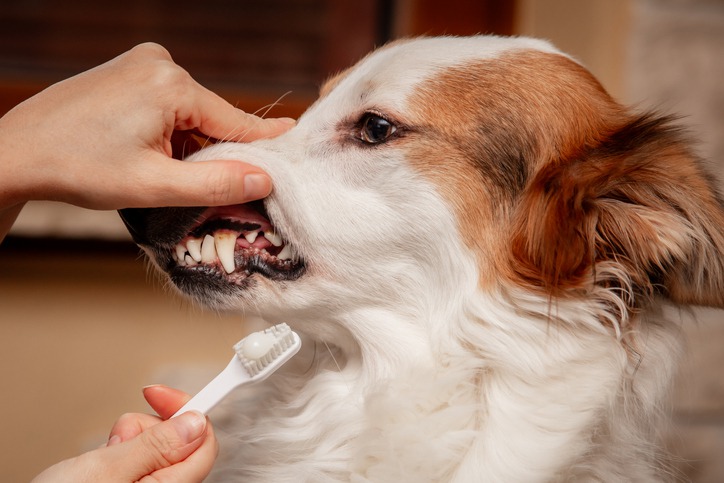Pet health is a common concern for many of us who consider our furry friends to be part of the family. Ensuring their well-being involves taking proactive steps to prevent common illnesses and conditions. In this article, we’ll discuss the most important preventative measures you can take to keep your pets happy and healthy.
Regular Check-Ups and Vaccinations
Routine visits to the vet are essential for your pet’s health. Regular check-ups allow the vet to monitor your pet’s overall well-being and catch any potential issues early. Vaccinations are also a crucial part of preventative care.
Why Regular Check-Ups Matter
-
Identify health issues early
-
Keep track of weight and diet
-
Update vaccinations
-
Receive expert advice
Importance of Vaccinations
-
Protect against diseases like rabies and distemper
-
Prevent the spread of contagious illnesses
-
Boost overall health
-
Meet local pet regulations
Proper Diet and Nutrition
A balanced diet is key to your pet’s health. Different pets have varying dietary needs, so it’s important to provide appropriate food for their age, breed, and health conditions.
Key Aspects of a Healthy Diet
-
High-quality animal protein
-
Essential vitamins and minerals
-
Proper hydration
-
Avoiding harmful foods
Feeding Guidelines
-
Consult your vet for diet advice
-
Follow portion recommendations
-
Avoid overfeeding treats
-
Provide fresh water daily
Exercise and Mental Stimulation
Exercise is as essential for pets as it is for humans. It helps maintain a healthy weight, supports muscle development, and keeps their minds sharp. Mental stimulation also plays a significant role in your pet’s overall well-being.
Types of Exercise
-
Walks and hikes for dogs
-
Interactive toys for cats
-
Playtime with other pets
-
Agility training
Mental Stimulation
-
Puzzle feeders
-
Training sessions
-
New environments to explore
-
Social interactions
Parasite Prevention
Parasites like fleas, ticks, and worms can cause a host of health problems for pets. Preventative measures are necessary to keep these pests at bay and ensure your pet remains healthy.
Flea and Tick Prevention
-
Use veterinarian-recommended treatments
-
Regularly check your pet’s fur
-
Keep your home clean
-
Avoid wooded areas during peak seasons
Worm Prevention
-
Administer regular deworming treatments
-
Practice good hygiene
-
Maintain a clean living environment
-
Be cautious with outdoor activities
Routine vet visits often include vaccinations and parasite prevention like the ones seen in https://www.stoneypointevet.com/site/veterinary-services-rochester/cat-dog-vaccinations-parasite-prevention as standard procedures. These preventative measures are crucial in maintaining your pet’s health. Parasites can cause a range of issues, from minor irritations to serious illnesses.
By preventing parasites through regular treatments and vaccinations, you ensure your pet lives a happier, healthier life. Discuss with your veterinarian which specific preventive steps are appropriate for your pet’s location and lifestyle.
Dental Care
Oral health is often overlooked but is crucial for your pet’s overall well-being. Regular dental care can prevent issues like gum disease, tooth decay, and bad breath.
Daily Dental Routine
-
Brush your pet’s teeth regularly
-
Use pet-friendly toothpaste
-
Provide dental chews
-
Schedule professional cleanings with your vet
Laser Treatment
Laser therapy is an emerging treatment option for various conditions in pets, including pain management and wound healing. This non-invasive treatment can provide relief and promote quicker recovery. Laser treatment can be especially beneficial for older dogs suffering from arthritis or chronic pain. Services that offer laser treatment for dogs are often equipped with the latest technology to ensure effective care.
Spaying and Neutering
Spaying or neutering your pet not only helps control the pet population but also offers several health benefits. These procedures can reduce the risk of certain cancers and eliminate behaviors related to mating instincts.
Benefits of Spaying
-
Reduces the risk of uterine infections and breast tumors
-
Prevents unwanted pregnancies
-
Eliminates heat cycles
Benefits of Neutering
-
Decreases the risk of testicular cancer
-
Reduces marking and spraying behavior
-
Lowers aggression levels
Regularly checking your pet by professionals ensures they stay in their best health. Their pet exams services cover various health aspects and can catch issues early before they become major problems. These exams include thorough check-ups that often involve blood tests, dental evaluations, and dietary consultations. This comprehensive approach ensures that your pet receives the best care possible.
Common Household Dangers
Several household items can pose risks to your pet’s health. Keeping these items out of reach and being aware of their dangers can go a long way in preventing accidents.
Toxic Foods
-
Chocolate
-
Grapes and raisins
-
Onions and garlic
-
Alcohol
Other Dangers
-
Household chemicals and cleaners
-
Small objects that can be swallowed
-
Toxic plants
-
Medications not prescribed for pets
Overall, taking these various preventative measures can keep your pet in optimal health. Routine check-ups, proper diet, exercise, parasite prevention, and dental care all play vital roles in maintaining their well-being.
Final Thoughts
Caring for a pet involves more than just love and affection; it requires proactive steps to ensure their health and happiness. By following these preventative measures, you can create a healthier and more fulfilling life for your furry friend. Remember, your vet is your partner in this journey, so keep those appointments and stay informed about the best practices for pet care.



